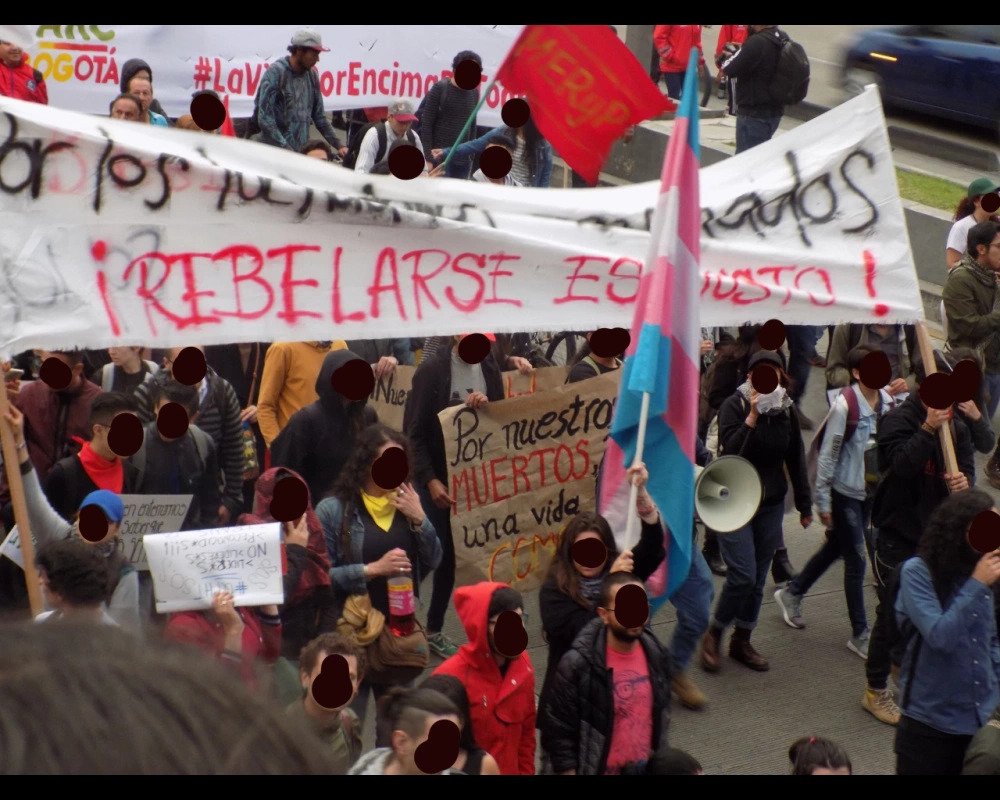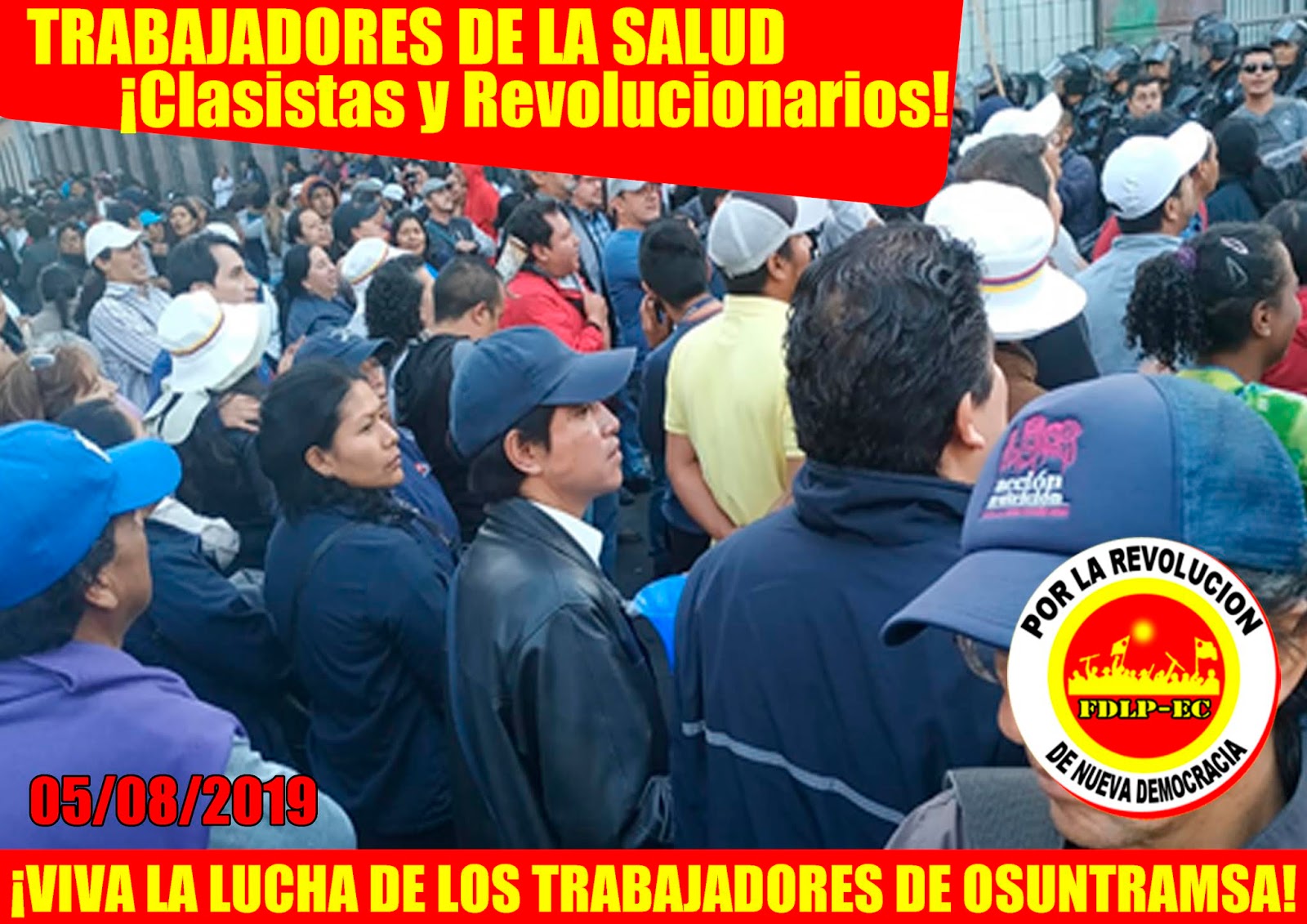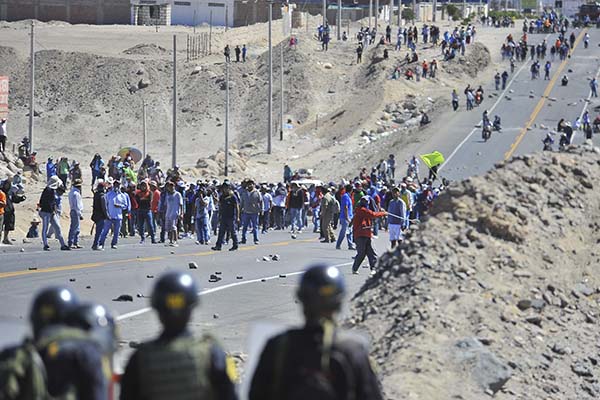DEM VOLKE DIENEN
- Details
- Lateinamerika
Ecuador: struggle of the poor peasants
Comrades from Ecuador published several statements in early August on the struggle of the masses in this oppressed nation. Since it is a semi-feudal and semi-colonial country in which the main force of the democratic revolution is the poor peasants, the peasants' struggle for their land is also one of the main struggles. In a statement of August 10, the comrades explain the situation of manual mining. There are of 4600 people working there 65% farmers who have undertaken this work instead of their small fields. A prerequisite for this mining is that the land be taken from the poor and middle peasants, for example in the provinces of El Carchi, Esmeraldas and Imbabura in northern Ecuador, where gold is sought. The whole thing is due to the presence of paramilitary troops, who often have connections to the police or military, who are there repressing people. The comrades declare: The rebellion is justified ! No more land for transnational mining companies, landowners and paramilitaries! The land to the poor peasants!
- Details
- Lateinamerika
Resistance to the murder of militants in Colombia
On 26 July, a demonstration was held in Bogotá on the Plaza de Bolívar. Thousands participated in the demo, which was accompanied by police in armored vehicles. The demonstration denounced the assassination of fighters of the people, with two groups standing out. For one, the group of bureaucratic leaders of the unions and the broad bank of opportunists who in a few weeks will legitimize the state with their elections that trotted behind the demo.
- Details
- Europa
Fascist Terror Attack Against Mosque in Bærum
We share this article from comrades in Norway:
One Injured After Mosque Shooting Carried out by White Terrorist with Helmet and Uniform
NRK and TV2 report that according to police, shots have been fired at the al-Noor Islamic Centre, a mosque in Bærum today. Police first received reports of the shooting at 16:09.
The man who carried out the attack was apprehended by a 65-year old inside the mosque, was tied down, and later arrested by the police. According to the police, he is an ethnic Norwegian. According to members of the mosque, he was white and wore a white helmet, a bulletproof vest, and a uniform. The police have found many weapons in the mosque, belonging to the perpetrator.
- Details
- Europa
Third consecutive day of riots in Ireland
- Details
- Europa
Demonstration for murdered Adel B. in Essen
We document a report with pictures of the demonstration "Justice for Adel", which was sent to us.
On the 8th of August a demonstration took place in Essen-Altendorf in memory of Adel B., shot by German policemen. In advance, the press has thrown around with a lot of dirt. On one side against Adel B. himself, who was portrayed as a mad Muslim knife-wielder . And on another side against revolutionaries who work in this district. But the "Initiative Justice for Adel" has been able to expose the lies of the German state and its press. From self-defense they quickly changed to emergency aid and this lie also crumbled after the demo like a house of cards. The closest relatives and friends could tell, either directly or through others, what kind of person Adel B. was. The demonstration and the exposure of the cover-up of the German state are a heavy blow against his fairy tales.
- Details
- Lateinamerika
New protests of the healthcare workers in Ecuador
On Monday, Ecuador’s town of Quito came to a standstill when workers employed in the healthcare sector took to the streets and blocked the major traffic ways in and out of the city. Their actions are a response to the continuing dismissals of workers in healthcare and the incapability of the government to provide even the most basic necessities for the people of the country.
- Details
- Lateinamerika
Recent struggles in Peru
In the last days, several important events have taken place in Peru, underscoring the continuing sharpening of the contradictions and class struggle in this country.
On 3 August - as previously announced - the first Extraordinary Assembly of SUTEP Regional Councils took place in Lima. Here are the photos of the event:
- Details
- Europa
Norwegian Soldiers to Mali and Imperialism in West Africa
We share this article by a commentator for Tjen Folket Media.
NRK reports that Norwegian soldiers have joined UN forces in the West African country of Mali. The country was a part of the French colonies in Africa, and is still dominated by French imperialism. We must see through the lies of Western media and reveal that Western imperialism by no means brings peace and development for these African masses.
European Imperialism Brings Chaos
In 2013, Al Jazeera, a news agency owned by the state of Qatar, published a longer article on Western imperialism in Mali and West Africa:







